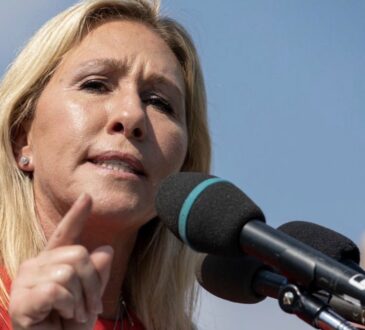
Donald Trump and Rosie O’Donnell have had a rocky relationship for years, filled with harsh comments and public arguments. Their ongoing feud recently exploded again when Trump unexpectedly launched a fresh attack on her through his social media platform, Truth Social.
In his post, Trump said he was seriously considering revoking O’Donnell’s U.S. citizenship.
He claimed she was not acting in the best interests of the country, called her a “threat to humanity,” and even suggested she should stay in Ireland, where she currently lives with her young son. His post ended with “God bless America,” framing his words as if he were defending the country from someone dangerous.
Rosie O’Donnell, a longtime critic of Trump, moved to Ireland after he secured his second term in office. She has continued to be outspoken about her dislike for him and his administration.
Although Trump clearly doesn’t appreciate her criticism, legal experts quickly pointed out that what he was threatening is simply not something a president can do. According to the U.S. Constitution, especially the Fourteenth Amendment, citizenship cannot be taken away from someone who was born in the United States. The Supreme Court made this very clear in a case from 1967.
Amanda Frost, a professor of law at the University of Virginia, explained that the president has no legal power to take someone’s citizenship just because he doesn’t like them. In a democracy like the United States, the people choose the government not the other way around and personal dislike is not a reason to take away someone’s rights.
Despite knowing that Trump’s threat had no legal basis, O’Donnell didn’t stay quiet. She hit back forcefully on Instagram by posting a photo of Trump with Jeffrey Epstein, the convicted sex offender whose life and death remain surrounded by controversy.
In her caption, she didn’t hold back. She wrote that Trump represents everything wrong with America, and that she embodies what he fears in what is still right with the country. She made it clear that he could never silence her, and that she was never someone he could control.
This reply touched a nerve because the connection between Trump and Epstein has long been a sensitive subject. Trump has always denied being close to Epstein and claimed he didn’t like him, even before Epstein died in jail in 2019 under circumstances that many people still question.
Although both the FBI and the Department of Justice have officially stated that Epstein died by suicide and that there is no secret list of powerful people he may have used for blackmail, doubts and conspiracy theories continue to spread.
One reason for this is that Trump himself once promised he would release all the Epstein files if elected. That promise has not been kept, and it continues to frustrate many of his supporters and critics alike.
Instead of clarifying the situation, Trump has shown signs of irritation when reporters bring up Epstein. He often complains that people keep asking questions about the matter, even though it was a big issue during his own campaign. His unwillingness to release information or address the public’s concerns has only added fuel to the fire.
This recent clash with O’Donnell highlights not only the personal animosity between the two, but also deeper issues about political power, freedom of speech, and how public figures try to control criticism.
Trump’s threat may not have any legal standing, but the exchange has stirred up public debate about leadership, accountability, and the limits of presidential authority. Meanwhile, Rosie O’Donnell’s response shows that despite living in another country, she’s still willing to stand up and speak out — no matter how powerful her opponent may be.




